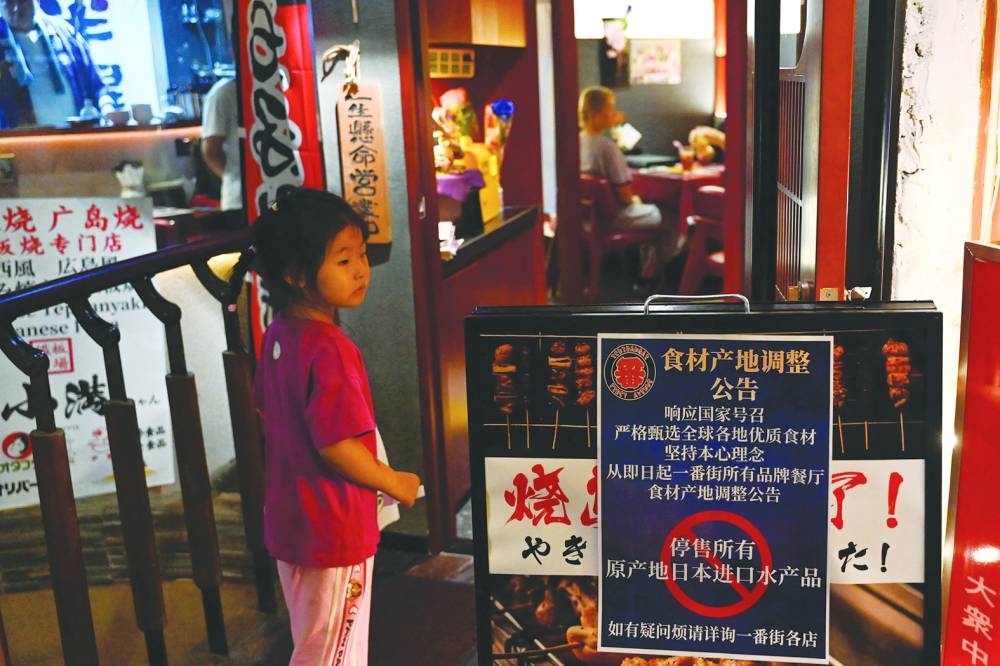Japan’s prime minister urged China to ensure its people “act in a calm and responsible manner” after instances of stones being thrown at diplomatic missions and schools, following the release of wastewater from the Fukushima nuclear plant.
Last week, China banned all seafood imports from its neighbour as Japan began releasing cooling water from the Fukushima plant in an operation that Tokyo and the United Nation’s nuclear watchdog have said is safe.
Since then, Japan has urged its citizens in China to keep a low profile and has increased security around schools and diplomatic missions. Businesses in Japan have meanwhile been swamped with nuisance calls from Chinese numbers.
“There have been numerous harassment calls believed to originate from China and instances of stones being thrown at the Japanese embassy and Japanese schools. It must be said these are regrettable,” Prime Minister Fumio Kishida said yesterday.
“We summoned the Chinese ambassador to Japan yesterday and strongly urged him to call on Chinese people to act in a calm and responsible manner,” Kishida told reporters.
Japan’s Deputy Foreign Minister Masataka Okano told the ambassador, Wu Jianghao, that China should properly inform the public “rather than unnecessarily raising people’s concerns by providing information that is not based on scientific evidence”, the foreign ministry said in a statement.
Asked what action Beijing would take over the stone throwing, Beijing’s foreign ministry spokesman Wang Wenbin said yesterday that China “always protects the safety and legitimate rights and interests of foreigners in China, in accordance with law”.
“We strongly urge the Japanese side to face up to the legitimate concerns of all parties, immediately stop the discharge of nuclear-contaminated water into the sea, fully consult with its neighbours and other stakeholders, and earnestly dispose of nuclear-contaminated water in a responsible manner,” Wang told a regular briefing.
On Sunday, Japan’s foreign ministry urged its citizens in to China to be “cautious in your speech and behaviour. Do not speak Japanese unnecessarily or too loudly.
“If you need to visit a Japanese embassy, consulate general, or Japanese school, pay close attention to your surroundings,” it added.

A girl is seen at an area of Japanese restaurants next to a sign reading “Suspend the sale of all fish products imported from Japan”, in Beijing, China.
